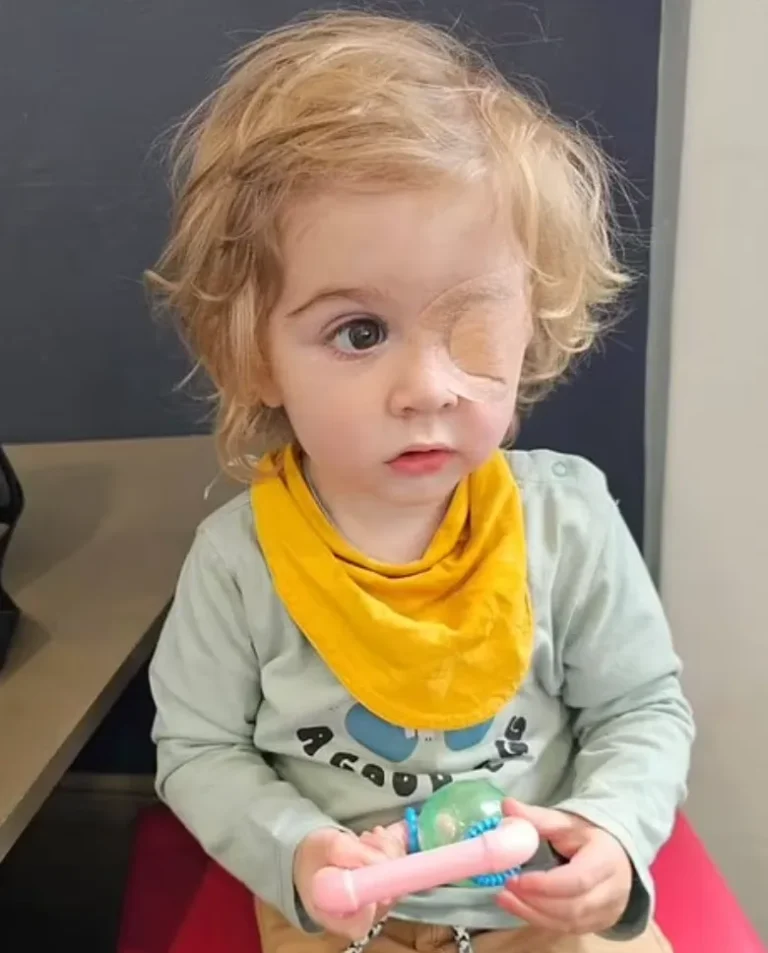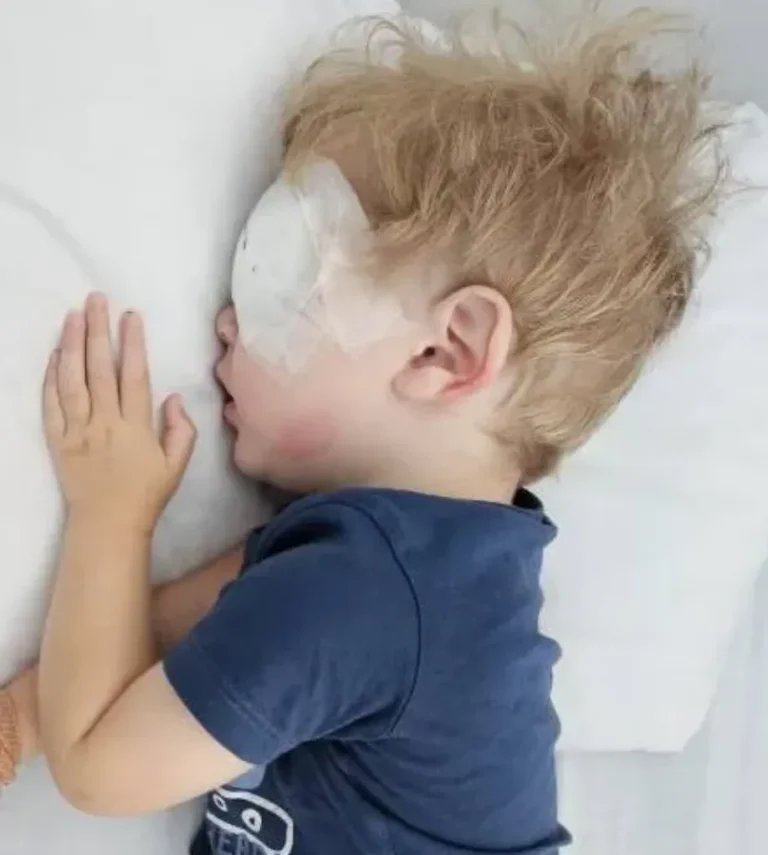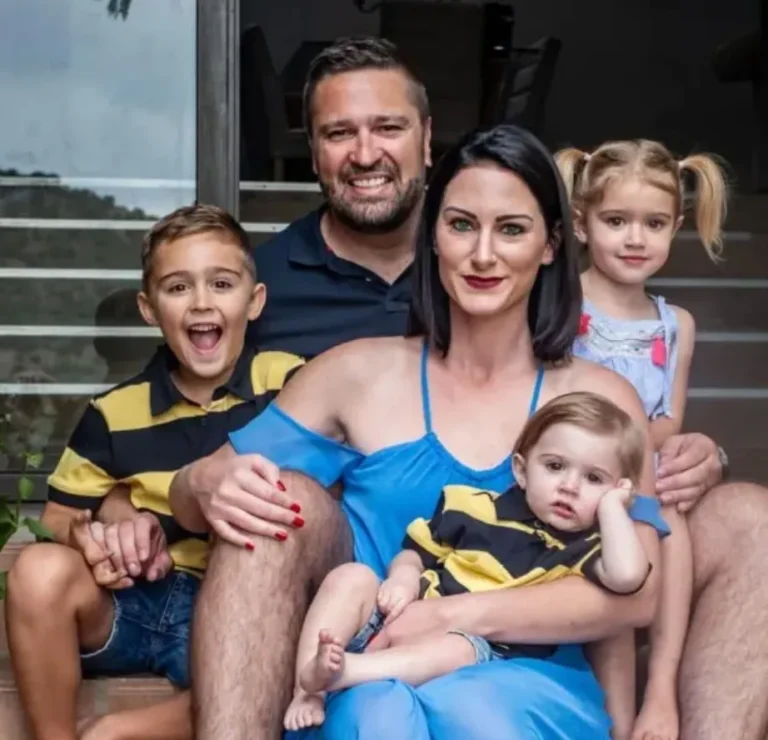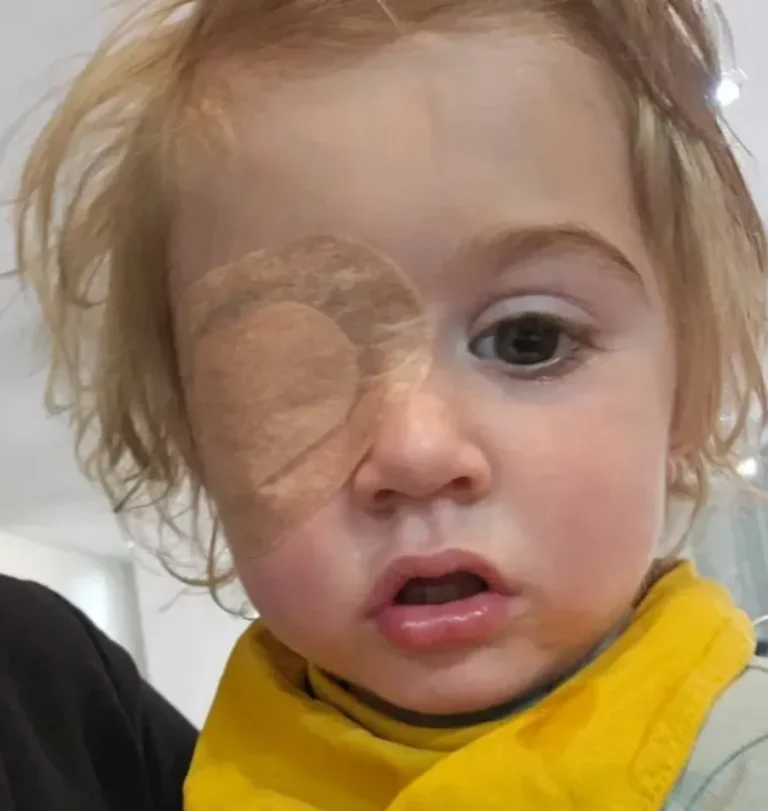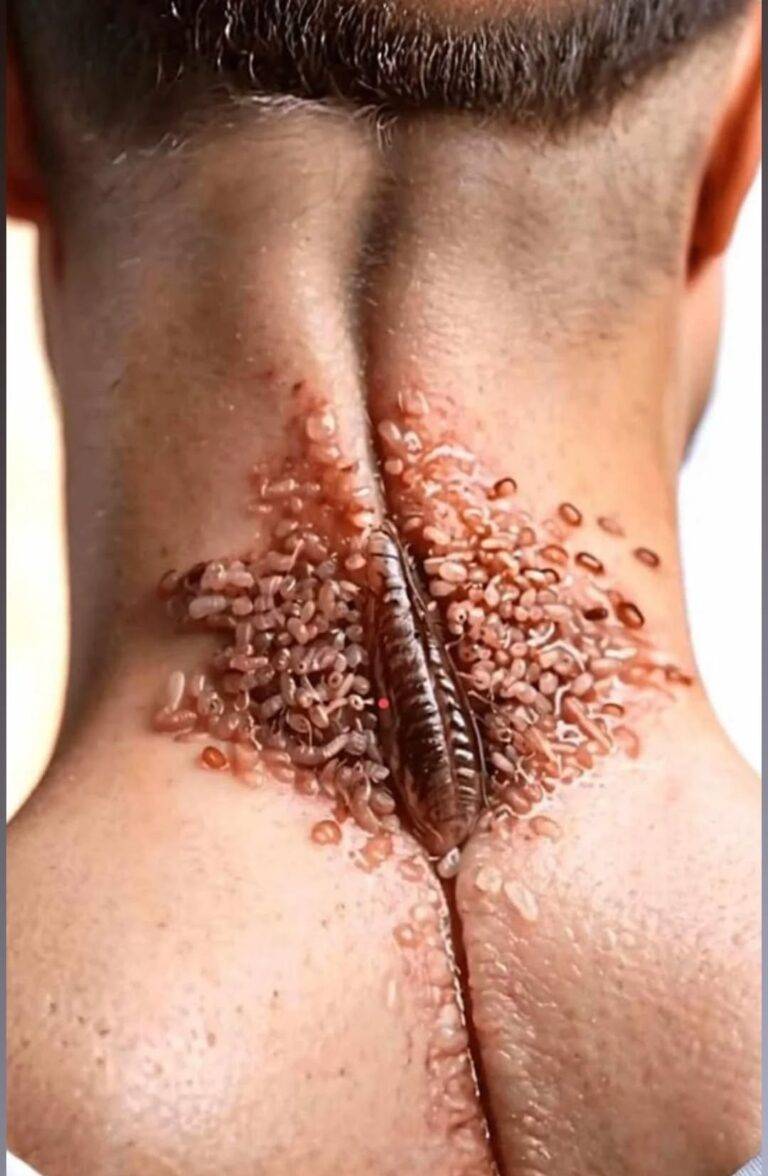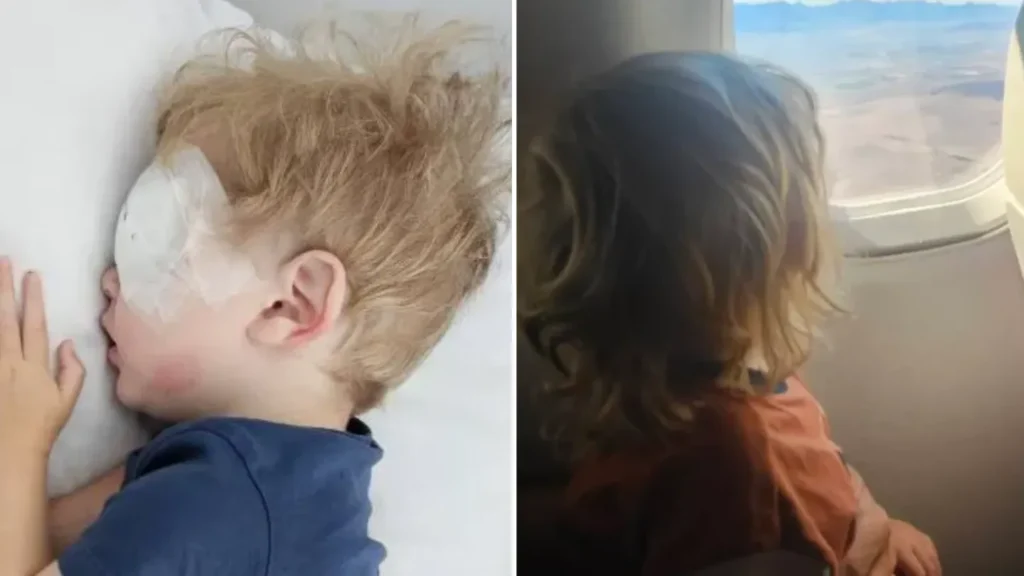
Cover 16
Michelle Saaiman, a mother from Namibia, faced every parent’s worst nightmare when she noticed a troubling eye symptom in her 16-month-old son, Juwan, that quickly took a tragic turn.
At first, Michelle observed what appeared to be a minor eye issue, something she assumed was harmless.
However, what seemed like a simple infection prompted Juwan’s parents to seek medical attention.
A doctor prescribed antibiotics and eye drops, assuring them that the condition would clear up within a few days—but things did not go as expected.
Juwan’s condition quickly worsened, leaving his mother deeply concerned.
His left eye turned red, became swollen, and soon developed an unusual growth inside, triggering a sense of alarm in Michelle as she realized the situation was more serious than initially thought.
What alarmed Michelle even more than the physical symptoms was Juwan’s lack of reaction when touching his eye.
Despite pressing directly on his eyeball, Juwan showed no sign of pain or discomfort.
His parents instantly realized that something was seriously wrong and rushed to take further action.
As the infection progressed, doctors struggled to find an effective solution, and Juwan’s vision continued to deteriorate.
Despite increasing his medication and closely monitoring his condition, the situation worsened.
Desperate for answers, Michelle took Juwan to a specialist in Cape Town, South Africa.
After thorough testing, doctors discovered that Juwan had contracted the herpes simplex virus (HSV-1).
The virus, which had likely spread from a cold sore, had severely infected his eye, causing irreversible damage to his cornea.
Michelle struggled to accept that something so devastating could happen to her innocent son.
Doctors explained that HSV-1 is a widespread virus, commonly found in the general population.
Many carriers show no symptoms and unknowingly transmit the virus through everyday contact.
While HSV-1 typically causes cold sores in adults—often healing on their own without medical treatment—the virus poses a far greater risk to young children.
In children under six, whose immune systems are still developing, HSV-1 can lead to life-threatening complications.
Doctors believe Juwan likely contracted the virus through a kiss from someone who had an active HSV-1 cold sore.
Once inside his system, the infection became aggressive, targeting his eye and forming a painful blister.
The blister eventually created a 4mm hole in his cornea, leaving his eye highly vulnerable to dangerous secondary infections.
Despite the medical team’s best efforts to repair the damage, the severity of the infection ultimately caused Juwan to lose all vision in his left eye.
Further complications arose as Juwan’s brain began to degenerate due to the lack of sensory input from his damaged eye.
In an effort to protect what remained, doctors made the difficult decision to preserve the eye with no other viable options available.
Now, an experimental surgical procedure could determine Juwan’s future, and his parents are doing everything they can to prepare.
The surgical team plans to transplant nerves from his leg into the eye socket in hopes of re-establishing a connection between the eye and the brain.
If successful, this groundbreaking procedure could make Juwan eligible for a cornea transplant, offering a chance at partial vision restoration.
Today, Michelle shares an urgent warning with parents around the world.
She passionately urges others, “Never let anyone kiss your newborn on the face.”
“Something as small as a virus has caused unimaginable emotional pain for our family. No matter how harmless it seems—it’s just not worth the risk.”
Feature Image Credit: (Michelle Saaiman)


